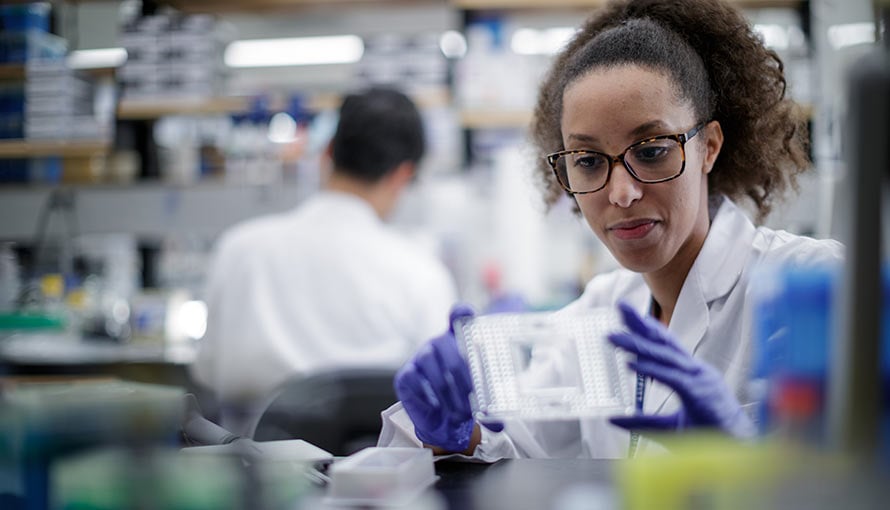
Cancer Immunotherapy Breakthrough: Dendritic Cell Vaccines
Moffitt Cancer Center continues to distinguish itself as a world leader in the development of novel immunotherapy treatments, capitalizing on the natural power of the body’s immune system to defend itself against the growth and spread of cancerous cells. Immunotherapies include checkpoint inhibitory antibodies, chimeric antigen receptor (CAR) T-cells, cancer vaccines, and oncolytic viruses. All these therapeutic approaches fight systemic disease, be it micro-metastatic or metastatic, with a proven therapeutic effect.
The latest addition to oncotherapy is the use of dendritic cell (DC) vaccine therapy. A dendritic cell vaccine is a cross between a vaccine and a cell therapy. These dendritic cells are like immune system factories and make other molecules that activate critical parts of the innate and adaptive immune system. Due to their proficiency at antigen presentation, DCs are key coordinators in the induction of antitumor immunity. Dendritic cells can be used as a vaccine by preparing together with either peptides or small portions of tumor antigens and they can then be injected into the body. Or through site-specific application, researchers have found that by injecting the DC vaccine intra-tumorally, they can unlock a whole set of other immune parameters that become activated. Emerging data suggest that the combination of DC-based vaccination with other cancer therapies may fully unleash the potential of DC-based cancer vaccines and improve patient survival.
The Breast Oncology Department, for example, has developed innovative clinical trials for vaccines that offer new ways to treat various types and stages of breast cancer and improve patient outcomes. Now researchers at Moffitt are working to develop a dendritic cell vaccine targeting HER3, a protein involved in the growth and spread of many different cancer types. Their pre-clinical work has been published in the journal Cancer Immunology Research. They're injecting HER2 pulsed dendritic cells (MCC 20915) made from the patient back into their breast tumor before chemotherapy. It drives a significant immune response in the breast and helps the Herceptin and Perjeta antibodies to create a more complete response.
Dendritic cell vaccines can potentially be used to treat different cancer types. Dr. Peter Forsyth, Department Chair, Neuro-Oncology and Dr. Brian Czerniecki, Department Chair, Breast Oncology will be launching a study against HER2 and HER3 to be used in HER2+ breast cancer leptomeningeal or triple-negative breast cancer leptomeningeal disease (leptomeningeal metastases).
Another trial that is also opening in early 2022 will focus on brain metastasis from breast cancer. "These studies look very promising in mice. They are important immunocellular therapies and are getting translated into the clinic,” said Dr. Peter Forsyth.
Dr. Jad Chahoud, a medical oncologist in the Department of Genitourinary Oncology at Moffitt Cancer Center, is conducting a study on dendritic cells for kidney cancer. It is a phase 2b randomized trial of autologous dendritic cell immunotherapy (CMN-001) plus standard treatment for advanced renal cell carcinoma after a nephrectomy (MCC 21083). This CMN-001 is an autologous, tumor antigen-loaded dendritic cell immunotherapy. The active components of CMN-001 are autologous, matured dendritic cells, which have been co-electroporated with both in vitro transcribed (IVT) RNA from an autologous tumor specimen and CD40L RNA. CMN-001 is indicated for the treatment of intermediate/poor-risk patients with advanced renal cell carcinoma (RCC) in combination with nivolumab plus ipilimumab as first-line therapy and in combination with lenvatinib plus everolimus as 2nd line therapy post-first-line failure.
If you’d like to refer a patient to Moffitt Cancer Center, complete our online form or contact a physician liaison for assistance. As part of our efforts to shorten referral times as much as possible, online referrals are typically responded to within 24 - 48 hours.
